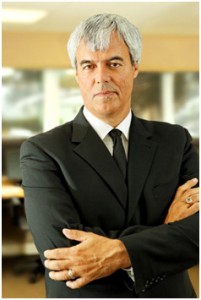André Durivage on the Development and Guidance of Future Leaders
What would the Dr. Do?
Dispensing expert HR advice from EPSI’s President, the highly respected author André Durivage, Ph.D.
Q: Last year, we developed a structured process for evaluating “up-and-comers” within the organization. This process involved a personality test, a test on interest in management and a structured interview. We selected a number of our most successful employees who had demonstrated some degree of management potential. After the evaluation, I felt that we were able to identify several leaders in the making. Since then, however, some of those whom we identified seem to have stagnated along their leadership development path. What do you recommend? What can we do to ensure that the people we identified truly have what it takes to become strong leaders?
Jonathan Gendron
Surrey, British Columbia
A: First, let me start by saying that your managerial responses are right on track. The use of psychometric evaluation tools is certainly an excellent beginning when you want to identify leaders in the making (I assume you used valid, reliable tools for this).
There are a number of factors that might explain the situation in which your organization finds itself today. It is becoming more and more common for organizations to develop processes to identify the next generation of managers. All too often, though, the subsequent stages in the process are neglected due to conflicting priorities, a lack of resources or, quite simply, a lack of time. In other words, leadership development itself must be seen as a work in progress. Although identifying these participants is important, it is only the first step in the process. Developing and guiding these future leaders will be crucial to your project’s success. I may not have all the data on your situation, but your explanation suggests that a number of improvements could be made in this area.
Many strategies can help produce concrete results in the development of new leaders. At any rate, the development of leaders must be seen as an important investment, rather than an expense. Additionally, it is crucial to involve your organization’s executives in this process as their contribution will be vital to ensuring its success. This commitment will also send a strong message to leaders in the making: the organization is prepared to invest in you! This typically results in higher productivity, as well as a direct increase in the motivation of leaders participating in the process.
Although it is vital, simply getting your organization’s executives on board is obviously not enough to ensure your project is a success. It is important to define a clearly structured approach for developing your future managers. First, you will need to design and implement personal development plans for each leader you have identified. By using past performance evaluations, you will be able to target key management competencies for development, which in turn will allow participants to grow. I would strongly encourage you to include the following activities in your plan: coaching, mentoring, 360° feedback, work opportunities for applying managerial skills, and so on.
This plan should also contain precise, measurable objectives. Evaluating the fulfilment of these objectives will be a crucial part of the process. Sadly, organizations often let this step fall by the wayside or fail to take it seriously enough. The truth is, though, that an organized, structured evaluation is called for here. What I mean is that a hybrid approach should be used, including an evaluation by each individual’s supervisor in addition to a self-evaluation by the person himself/herself. There should then be a feedback session for frank, constructive discussion between the two parties.
It is important to keep this leadership development process alive. Leading by example takes on its full meaning when the time comes to train the next generation of leaders! So far, your organization seems to be on the right path; you just need to keep moving forward in the right direction.
To submit a question to be answered by EPSI’s president André Durivage, Ph.D., please send an email to info@epsi-inc.com with ‘Question for the Doctor’ clearly marked in the subject line.
